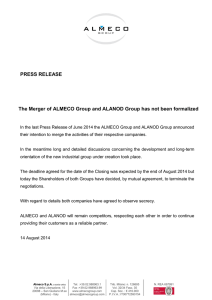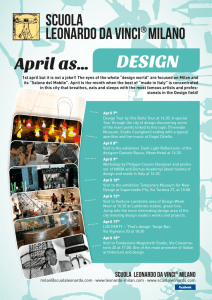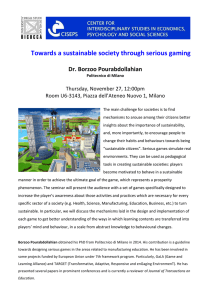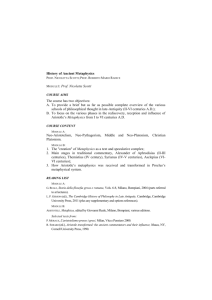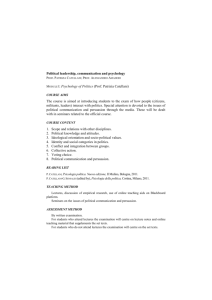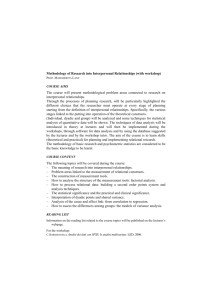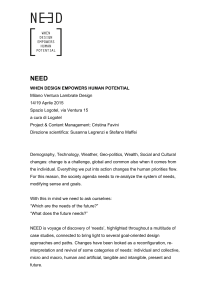Methodology of Training and Special Activities
advertisement
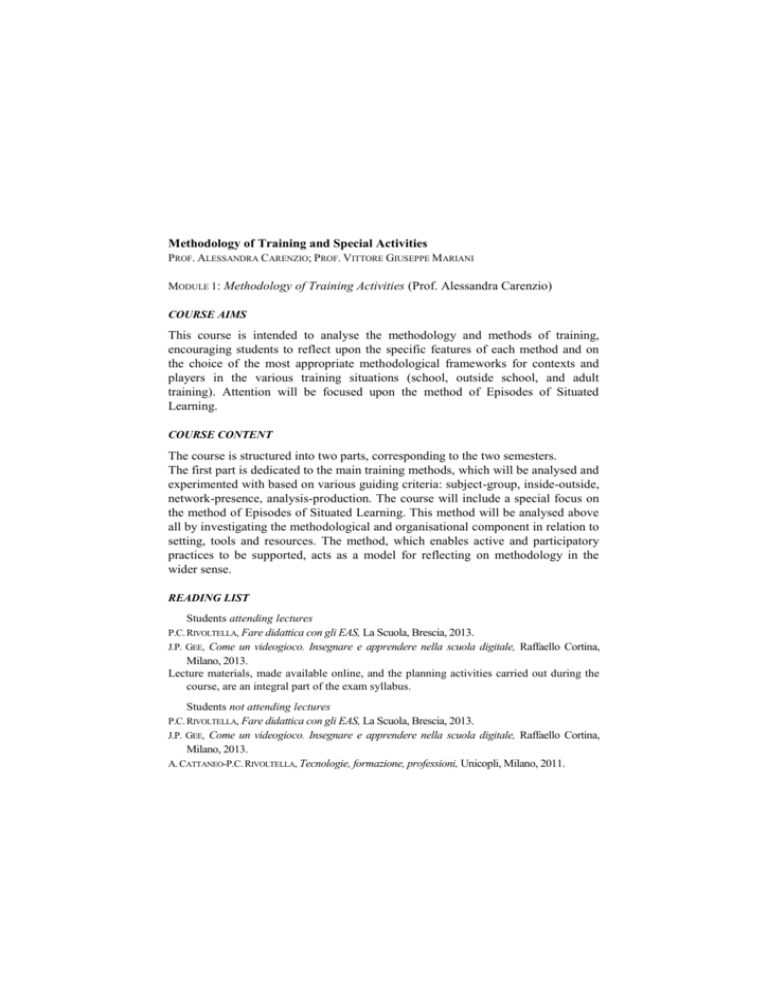
Methodology of Training and Special Activities PROF. ALESSANDRA CARENZIO; PROF. VITTORE GIUSEPPE MARIANI MODULE 1: Methodology of Training Activities (Prof. Alessandra Carenzio) COURSE AIMS This course is intended to analyse the methodology and methods of training, encouraging students to reflect upon the specific features of each method and on the choice of the most appropriate methodological frameworks for contexts and players in the various training situations (school, outside school, and adult training). Attention will be focused upon the method of Episodes of Situated Learning. COURSE CONTENT The course is structured into two parts, corresponding to the two semesters. The first part is dedicated to the main training methods, which will be analysed and experimented with based on various guiding criteria: subject-group, inside-outside, network-presence, analysis-production. The course will include a special focus on the method of Episodes of Situated Learning. This method will be analysed above all by investigating the methodological and organisational component in relation to setting, tools and resources. The method, which enables active and participatory practices to be supported, acts as a model for reflecting on methodology in the wider sense. READING LIST Students attending lectures P.C. RIVOLTELLA, Fare didattica con gli EAS, La Scuola, Brescia, 2013. J.P. GEE, Come un videogioco. Insegnare e apprendere nella scuola digitale, Raffaello Cortina, Milano, 2013. Lecture materials, made available online, and the planning activities carried out during the course, are an integral part of the exam syllabus. Students not attending lectures P.C. RIVOLTELLA, Fare didattica con gli EAS, La Scuola, Brescia, 2013. J.P. GEE, Come un videogioco. Insegnare e apprendere nella scuola digitale, Raffaello Cortina, Milano, 2013. A. CATTANEO-P.C. RIVOLTELLA, Tecnologie, formazione, professioni, Unicopli, Milano, 2011. TEACHING METHOD This course comprises teaching activities carried out in the form of lectures, workshops and seminar dicussions. ASSESSMENT METHOD Students attending lectures will be assessed on their written work, tests and presentations, along with an oral exam. Those not attending lectures will be assessed by means of a final oral exam. NOTES Further information can be found on the lecturer's webpage http://www2.unicatt.it/unicattolica/docenti/index.html or on the Faculty notice board. at MODULE 2: Special Methodology (Prof. Vittore Giuseppe Mariani) COURSE AIMS To learn the fundamental notions of special pedagogy in order to assist people with disabilities and tackle the educational emergency. COURSE CONTENT PART 1: People with intellectual disabilities. 1. People with intellectual disabilities: dignity, rights, potential and danger of marginalisation. 2. The educational helping relationship. 3. Affective and sexual education. 4. The individualised educational project, safeguarding the life plan. 5. Services for integration and for “After we’ve gone”. PART 2: The educational response to adolescent maladjustment. 6. Manifestations and causes of adolescent maladjustment and educational emergency. 7. Short-, medium- and long-term life plans. 8. Promotion of the whole person: motor, intellectual, religious and affective education. 9. Characteristics of the educational relationship. 10. Enhancing adolescents’’ potential. READING LIST V. MARIANI, Adolescenti. Maneggiare con cura. Manuale per educare in famiglia, Ancora, Milano, 2012. V. MARIANI, Disabilità intellettiva. Educazione affettiva e sessuale, Paoline, Milano, 2013. TEACHING METHOD Lectures, using expositive, dialogic and maieutic methods. ASSESSMENT METHOD Oral exams. NOTES Further information can be found on the lecturer's webpage http://www2.unicatt.it/unicattolica/docenti/index.html or on the Faculty notice board. at
